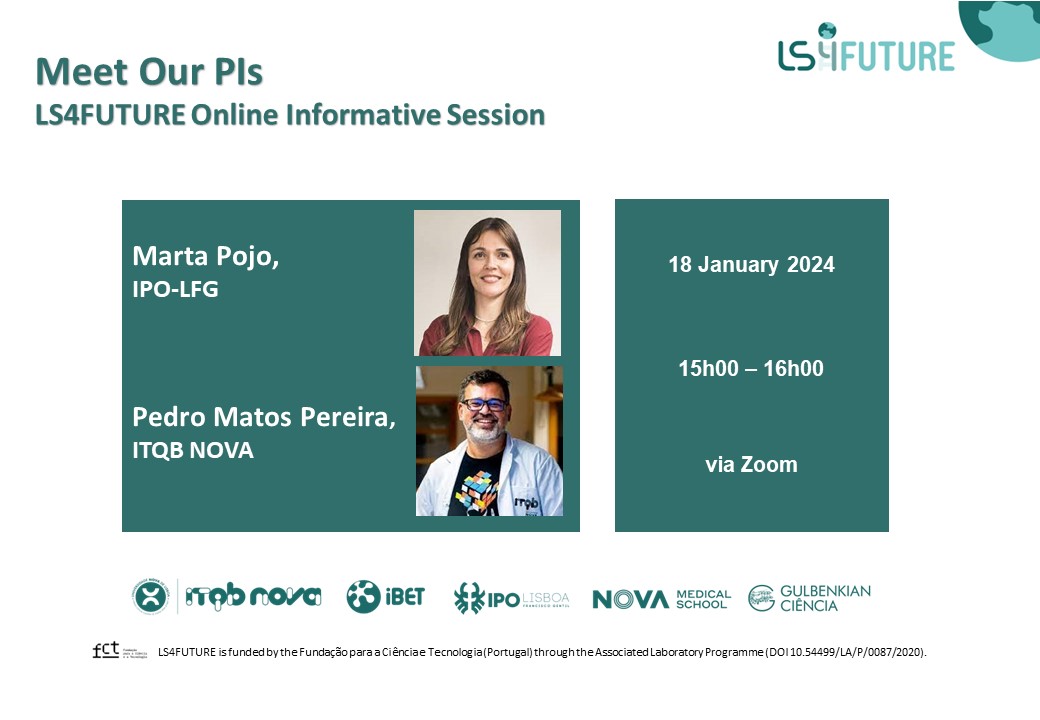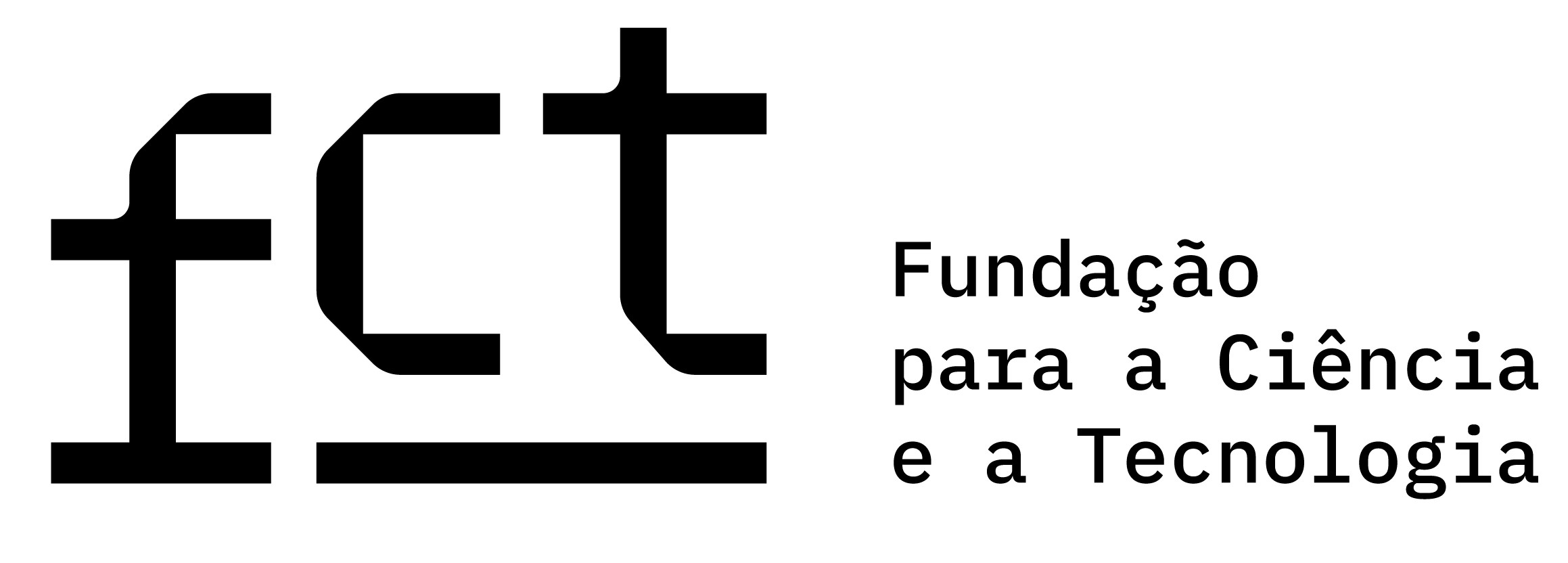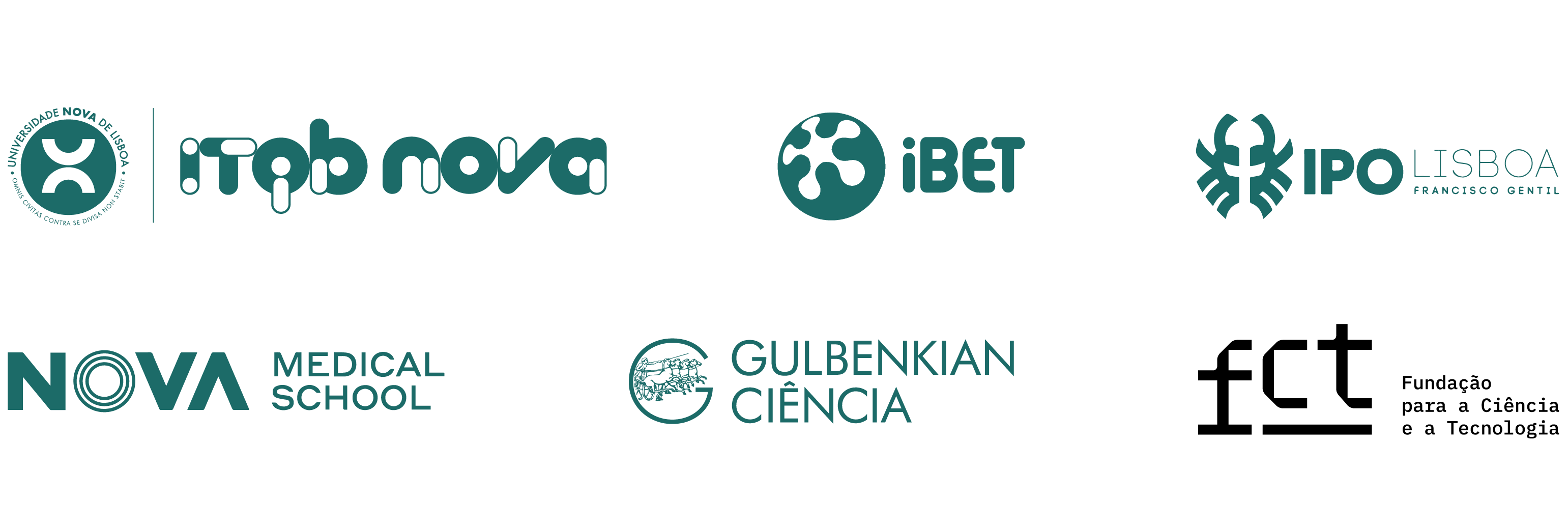“Meet our PIs” Online Informative Session – CANCELLED
Dear LS4FUTURE Community,
Join us for the upcoming “Meet our PIs”, and our first “Online Informative Sessions” of 2024, with Marta Pojo from IPOLFG and Pedro Matos Pereira from ITQB NOVA
LS4FUTURE Online Informative Session “Meet our PIs”
January 18th
15h00 – 16h00
As part of our Online Informative Sessions series, we try to bring topics meant to inform and empower our community and promote networking. With the “Meet our PIs” we aim to showcase the diversity of academic careers of the Principal Investigators of the Associate Laboratory and their research. The two guest PIs will introduce themselves, describe their academic journey, and share their current research questions and interests. A Q&A session will follow their presentations.
About our Guest PIs:
Marta Pojo from IPOLFG
Our mission is to unravel the intricate cellular and molecular processes driving melanoma’s aggressiveness, progression, and resistance to therapy.
Cutaneous melanoma stands out as the most lethal type of skin cancer, characterized by high mortality rates and poor prognosis in advanced stages. Over the last decades, its incidence has been rising and it has become a concerning public health issue. Notably, melanoma ranks among the most immunogenic tumours, and immunotherapeutic strategies have been shown to increase patient survival. Nonetheless, resistance to these therapies is, unfortunately, a significant hurdle, with the mechanisms underlying these differential responses still largely unknown. Bridging this gap in knowledge propels our research forward – how can we efficiently distinguish patients that will respond well to these therapies from those who will not? Can we predict melanoma aggressiveness and response to therapy based on circulatory biomarkers? What role does the immune microenvironment play in immunotherapy responses? We are currently employing techniques such as multicolor flow cytometry and gene expression analysis using patient samples, which could pave the way for a better comprehension of this disease.
Pedro Matos Pereira from ITQB NOVA
The Intracellular Microbial Infection Biology (IMIB) laboratory is interested in exploring how facultative intracellular bacteria interact with mammalian cells in the context of bacterial infection and bacterial-viral co-infection (super-infection), using a combination of advanced microscopy approaches, organ-on-a-chip 3D cell system and classical cell biology and biochemistry approaches.
In Europe, the burden caused by antibiotic-resistant bacterial infections is equivalent to influenza, HIV/Aids and Tuberculosis combined. Unsurprisingly, classical bacterial-host interactions (e.g. extracellular and professional intracellular bacterial infections) have been the subject of comprehensive research. However, the bacterial factors important for intracellular infection by facultative intracellular bacteria (e.g. Staphylococcus aureus – S. aureus – or Streptococcus pneumoniae – S. pneumoniae) and how they modulate autonomous immunity are still not fully understood. Further, while bacteria and viruses often occupy the same niches and interact, how this interplay modulates the interaction of facultative intracellular bacteria with host cells is also not fully understood.
We look forward to welcoming you to this Online Session.






